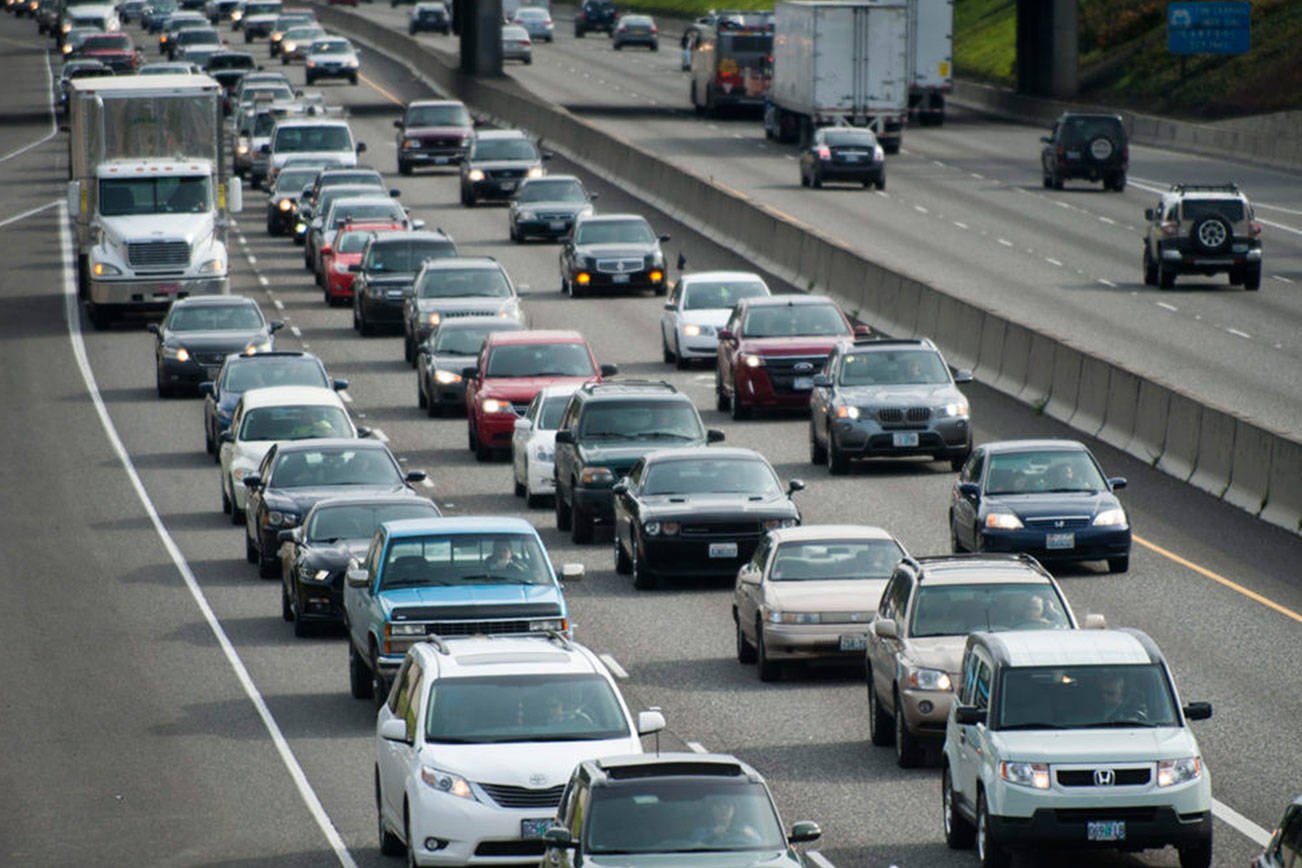In 2014, President Barrack Obama opened the door for states to collect tolls on interstate highways. This year Oregon lawmakers, much to the chagrin of Washington drivers and truckers, unilaterally took advantage of the new funding opportunity.
Before adjourning in July, Oregon’s legislature passed an ambitious $5.3 billion comprehensive transportation plan. To fund it, legislators raised fuel taxes, increased registration and title fees, created a new payroll tax, added taxes on auto and bicycle sales, and placed tolls on Portland metro area highways, including interstates.
Under the new law, Oregon’s Department of Transportation will begin planning tolling stations on I-5 and I-205 between the state line and Wilsonville. The ODOT will need federal approval, and that likely will be a fight.
The plan was Oregon and Washington would collectively toll I-5 to fund a new bridge just as they did in 1917 and 1958 when the existing bridges were built. Federal gas taxes, which funded 90 percent of the I-205 Bridge ($177 million), are no longer available.
The Columbian editorialized that “about 65,000 people traverse the state line each day to work in the Portland area, meaning they would pay tolls while coming and going. These are people, mind you, who already pay income tax to Oregon despite not living there.”
Even more galling is Oregon officials plan to spend much of the money on Portland’s south end where I-5 and I-205 reconnect—-a region beyond most Washington commuters’ drive.
So, what’s behind the surge in tolling?
The problem for states is the federal government isn’t providing the bulk of interstate funding as it did a half century ago. With our massive federal debt, lawmakers can’t afford to transfer money from the general fund.
The federal gas tax has been stuck at 18 cents a gallon since 1993. Meanwhile, Washington’s gas tax is 55.9 cents per gallon. Oregon stands at 49 cents, but it will incrementally increase by 10 cents over the next eight years. (Diesel taxes are even higher).
Meanwhile, road construction costs are up by 335 percent since the turn of the century, and traffic congestion worsens.
Today, vehicles are more fuel efficient and there is a rapid increase in electric vehicles – all bad news for a funding scheme relying heavily on taxes at the pump.
In 2014, Dr. David Block, executive director of the Electric Vehicle Transportation Center, University of Central Florida, calculated each electric car was responsible for $373 in lost gas taxes. That carved $51 million out of the $35 billion highway budget that year.
The move to electric cars is rapidly rising. In May, Block estimated plug-in electric vehicle sales (PEV) last year grew by 34 percent.
Carmakers are betting heavily on electric vehicles. One reason is Great Britain, India, France and Norway have announced plans to completely ditch gas and diesel cars starting as early as 2025 (Norway).
Volvo is already phasing out internal combustion engines, while Toyota, the world’s second largest auto manufacturer, has developed a new lithium-ion battery that slashes charging times, is more compact and extends driving distances. Toyota hopes to introduce it in 2022 models.
Traffic jams are costly.
American Transportation Research Institute (ATRI) said increased congestion-related costs added approximately $49.6 billion to the trucking industry. This lost productivity is equivalent to 264,781 commercial truck drivers sitting idle for an entire working year.
The bottom line is drivers are likely to see more tolling. There are more cars on the road, construction and maintenance costs are escalating and fuel tax collections are insufficient.
However, future tolling proposals need to be better planned, coordinated and more equitable. Fairness must be a guide post.
Don C. Brunell is a business analyst, writer and columnist. He retired as president of the Association of Washington Business, the state’s oldest and largest business organization, and now lives in Vancouver. He can be contacted at theBrunells@msn.com.
Talk to us
Please share your story tips by emailing editor@kentreporter.com.
To share your opinion for publication, submit a letter through our website https://www.kentreporter.com/submit-letter/. Include your name, address and daytime phone number. (We’ll only publish your name and hometown.) Please keep letters to 300 words or less.

